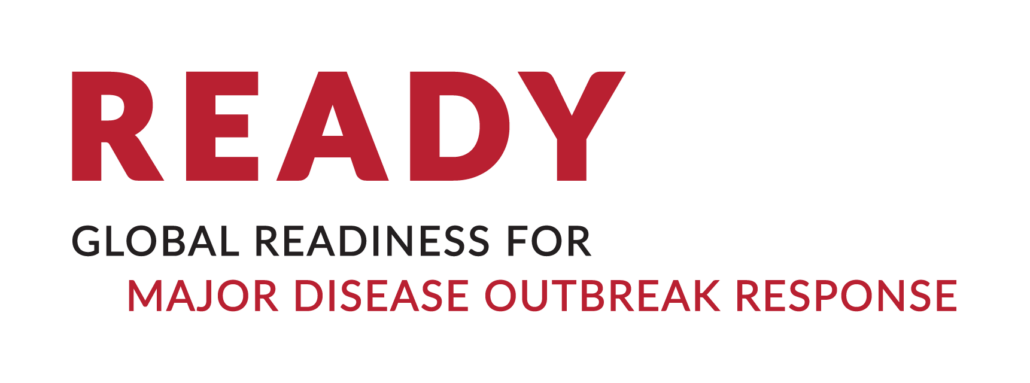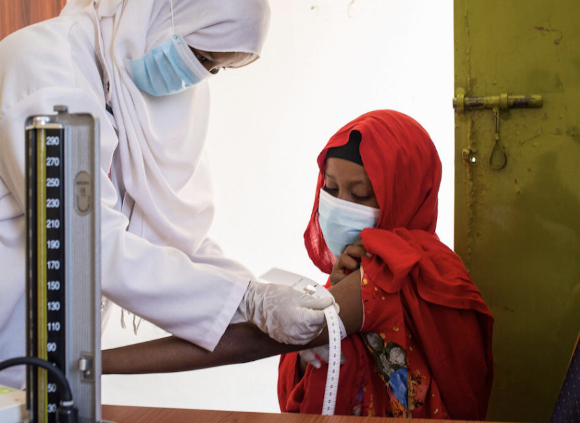¿Qué servicios de salud en entornos humanitarios NO debemos brindar durante el COVID-19?
Oradores: Prof. Karl Blanchet, Centro de Estudios Humanitarios de Ginebra; Dra. Esperanza Martínez, CICR; Dra. Teri Reynolds, OMS; Dr. Apostolos Veizis, MSF-Grecia; Prof. Kjell Johansson, Univ. de Bergen
La COVID-19 genera trastornos sin precedentes en la prestación de servicios de atención médica de rutina. Es fundamental garantizar el acceso continuo a la atención médica esencial no relacionada con la COVID-19. Pero ¿qué intervenciones sanitarias deberían considerarse esenciales en situaciones humanitarias? Únase al profesor Karl Blanchet del Centro de Estudios Humanitarios de Ginebra y a los panelistas seleccionados para explorar esta cuestión controvertida, aunque crítica.
MODERADOR: Profesor Karl Blanchet, profesor y director del Centro de Estudios Humanitarios de Ginebra: Karl Blanchet es profesor de Salud Pública Humanitaria y director del Centro de Estudios Humanitarios de Ginebra en la Universidad de Ginebra y en el Instituto de Altos Estudios. El profesor Blanchet es también uno de los cofundadores de la plataforma humanitaria COVID-19.
PANELISTAS
- Dra. Esperanza Martínez, Jefa de Salud del Comité Internacional de la Cruz Roja (CICR): La Dra. Martínez es responsable de supervisar la prestación de servicios de salud humanitarios a las poblaciones afectadas por la guerra y la violencia en más de 80 países de todo el mundo. La Dra. Martínez es médica y cirujana general, que se formó en Colombia y se especializó en Salud Pública Internacional y Gestión de la Salud en Australia. Su experiencia incluye más de diez años de trabajo de campo en países afectados por conflictos, así como trabajo con agencias de la ONU, organismos gubernamentales y el sector privado.
- Dra. Teri Reynolds, Responsable de Servicios y Sistemas Clínicos, Organización Mundial de la Salud: Teri Reynolds dirige la Unidad de Servicios y Sistemas Clínicos del Departamento de Servicios Integrados de Salud en la sede de la Organización Mundial de la Salud en Ginebra. La Unidad de Servicios y Sistemas Clínicos reúne por primera vez el trabajo de la OMS sobre canales de prestación integrados (que incluyen atención primaria, atención de urgencia, cuidados intensivos, atención quirúrgica y cuidados paliativos) con un nuevo enfoque en la organización eficaz y el movimiento de personas en todo el sistema de salud. La Dra. Reynolds dirigió anteriormente los programas de atención de urgencias y traumatismos en la OMS y actualmente coordina los esfuerzos para mantener los servicios de salud esenciales durante el brote de COVID-19. Anteriormente fue profesora y directora de Salud Global del Departamento de Medicina de Urgencia de la Universidad de California en San Francisco y dirigió la Residencia de Medicina de Urgencia y los programas de investigación en el Hospital Nacional Muhimbili en Tanzania durante varios años.
- Dr. Apóstol Veizis, Director de Apoyo Operativo Médico, Médicos Sin Fronteras-Grecia: Apostolos Veizis es médico (médico general). Trabaja en la sede de Médicos Sin Fronteras-Grecia como Director de la Unidad de Apoyo Operativo Médico (SOMA). Anteriormente, el Dr. Veizis trabajó como Jefe de Misión y Coordinador Médico de Médicos Sin Fronteras y Médicos del Mundo en Azerbaiyán, Federación Rusa, Albania, Egipto, Georgia, Grecia y Turquía, y ha participado en numerosas evaluaciones de campo, misiones de emergencia y evaluaciones.
- Profesor Kjell Johansson, Bergen Centre for Ethics and Priority Setting, Universidad de Bergen: Kjell Arne Johansson (MD, PhD) es médico y profesor de ética médica en el Bergen Centre for Ethics and Priority Setting (BCEPS) del Departamento de Salud Pública Global y Atención Primaria de la Universidad de Bergen. Sus intereses de investigación incluyen el establecimiento de prioridades, la justicia distributiva y los métodos de impacto de la equidad aplicada en la salud global. Actualmente, es presidente de la International Society for Priorities in Health (ISPH). Además, el profesor Johansson trabaja clínicamente en medicina de las adicciones como consultor sénior e investigador sénior en el Departamento de Medicina de las Adicciones del Hospital Universitario Haukeland, donde participa en un ensayo que evalúa el tratamiento integrado de la hepatitis C para usuarios de drogas inyectables.


Este sitio web es posible gracias al apoyo del pueblo estadounidense a través de la Agencia de los Estados Unidos para el Desarrollo Internacional (USAID) en el marco de la iniciativa READY. READY (no es un acrónimo) cuenta con el apoyo de USAID. Oficina de Democracia, Conflictos y Asistencia Humanitaria, Oficina de Asistencia para Desastres en el Extranjero de EE. UU. (OFDA) y es liderado por Salva a los niños en asociación con el Centro Johns Hopkins para la salud humanitaria, el Centro Johns Hopkins para programas de comunicación, Reino Unido-Med, Alianza EcoSalud, y Misericordia Malasia. Los contenidos de este sitio web son responsabilidad exclusiva de Save the Children. La información proporcionada en este sitio web no refleja necesariamente las opiniones de USAID, de ninguno o de todos los socios del consorcio, ni del gobierno de los Estados Unidos, y no es información oficial del gobierno de los EE. UU.


